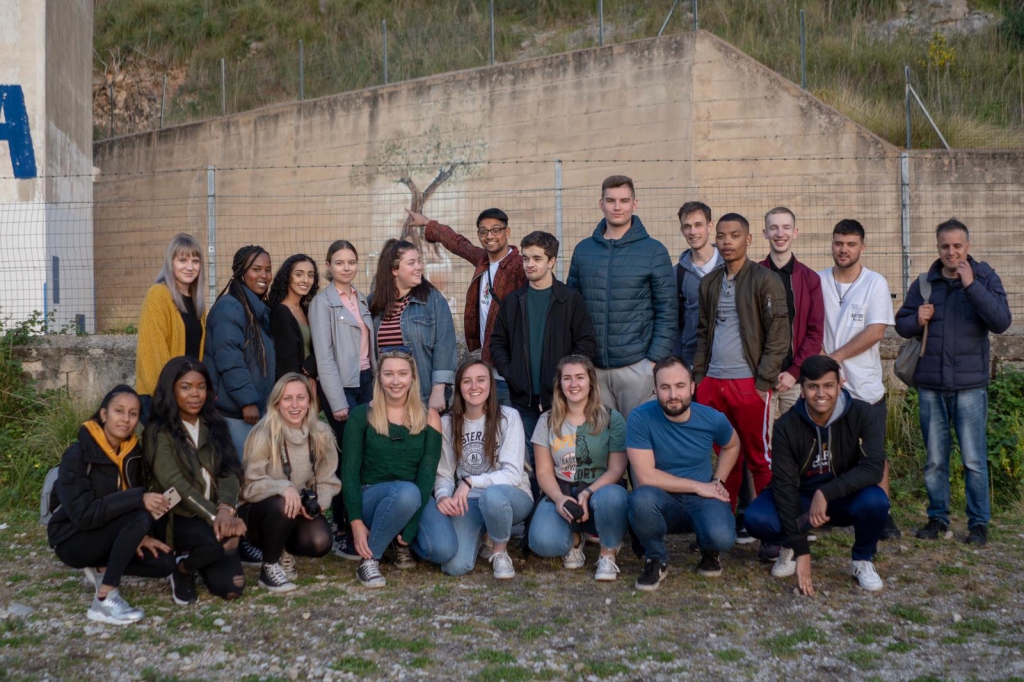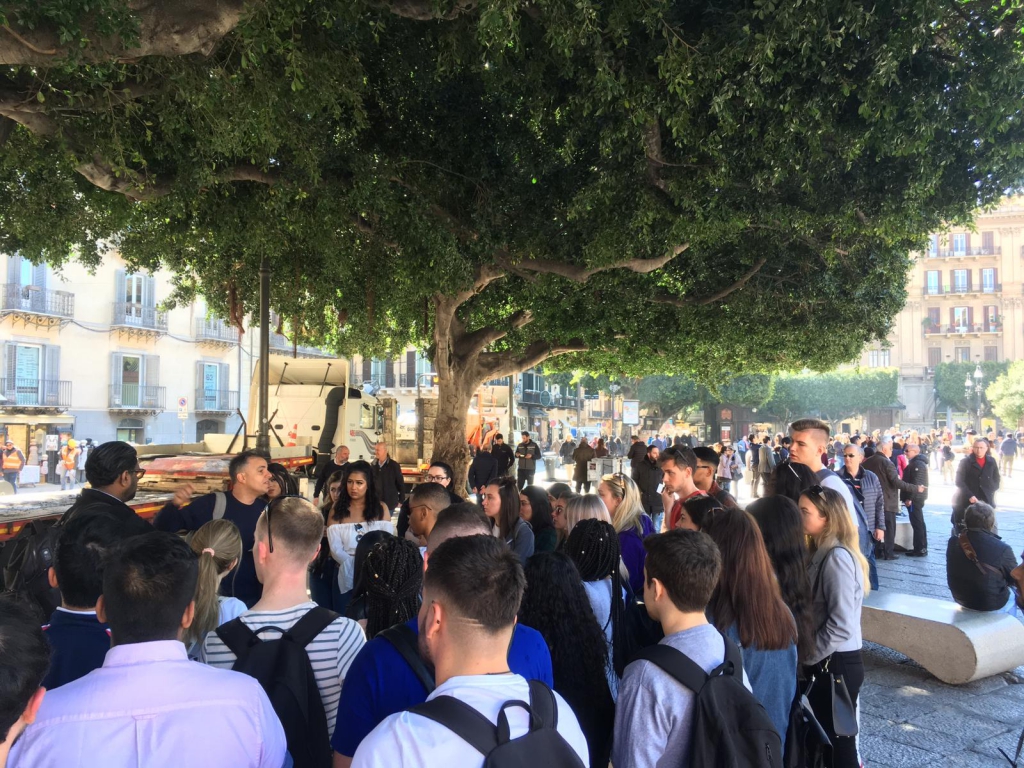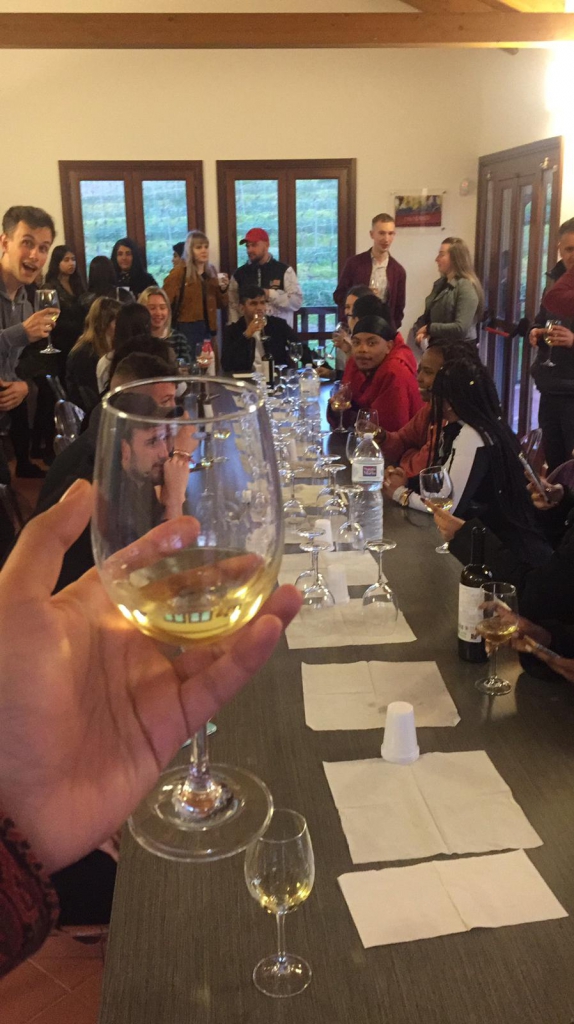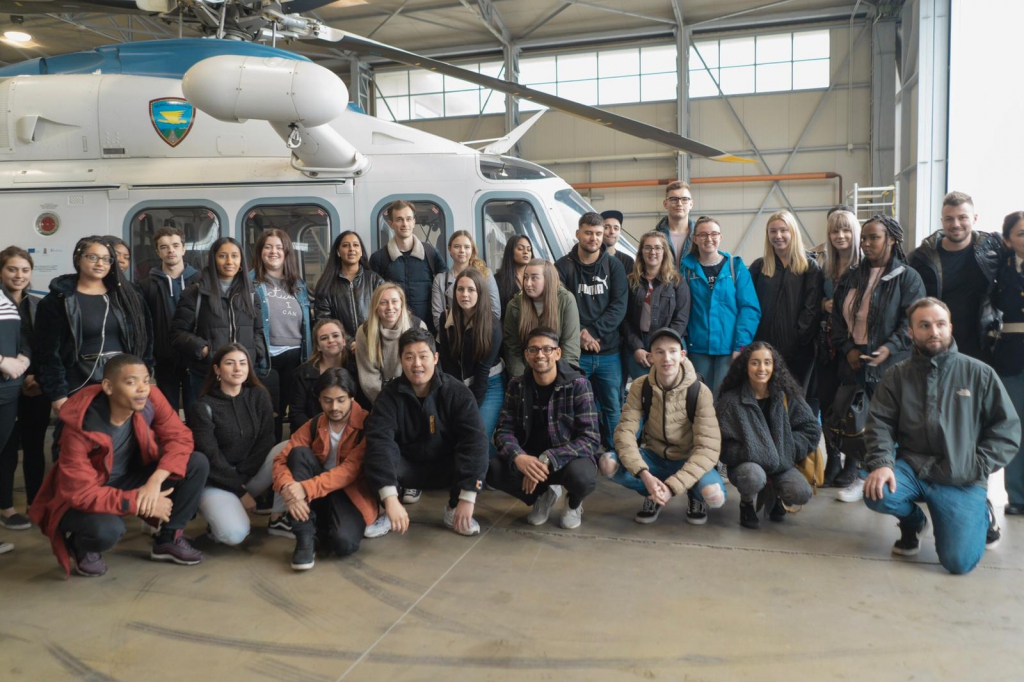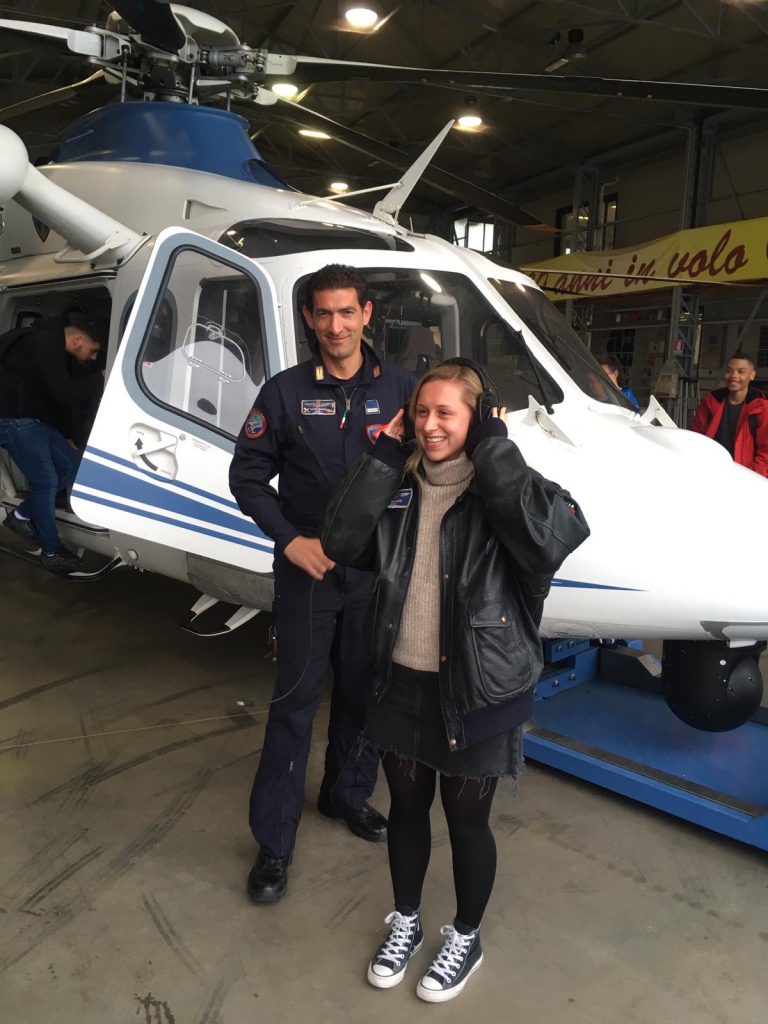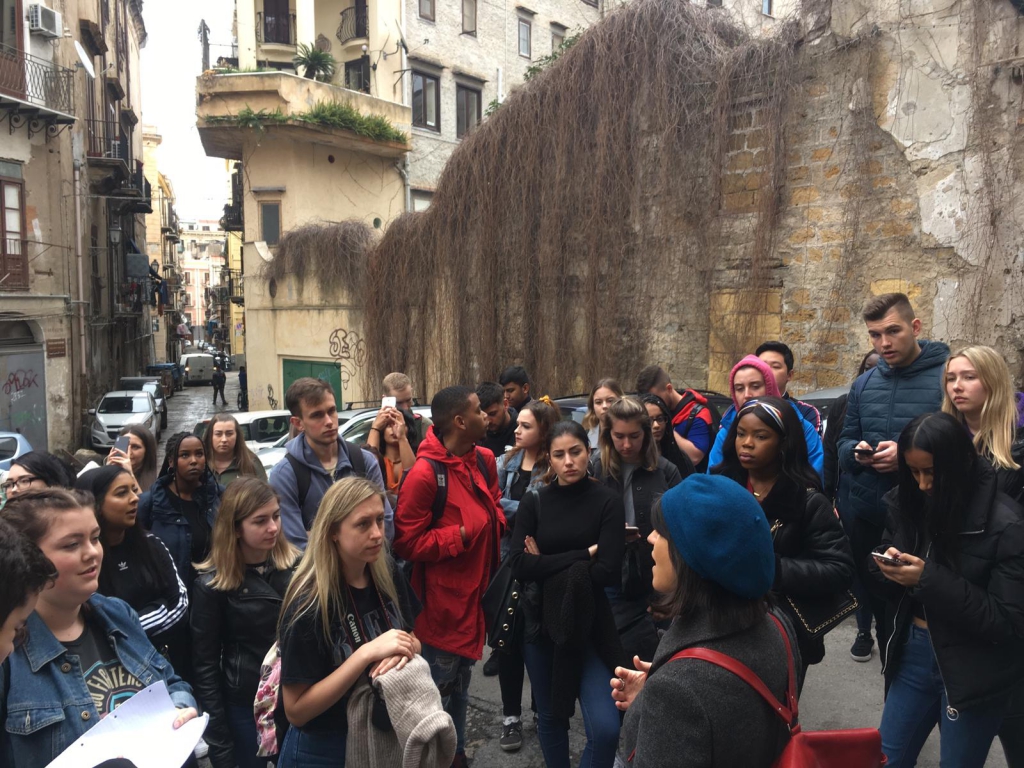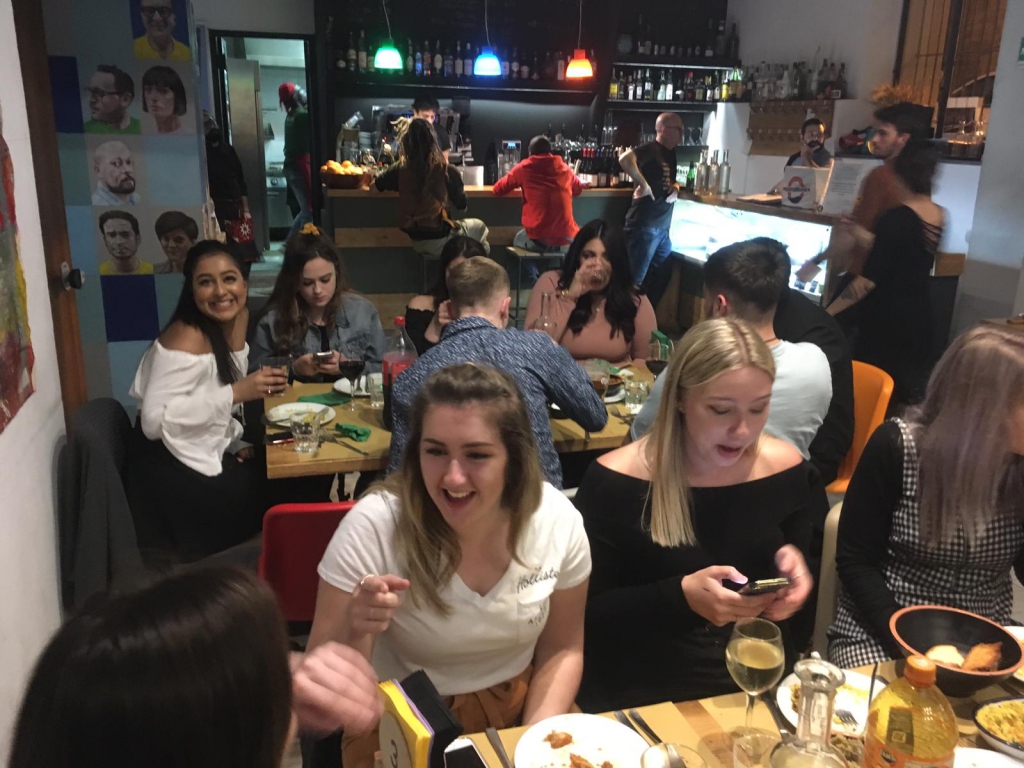Final year students visit Sicily to learn about the mafia, antimafia and the migrant crisis
Final year students on History, Politics, International Relations, Sociology and related degrees recently visited Sicily in March to learn about the mafia, antimafia and the migrant crisis. Below is a sample of some the the activities students partook in.
Students began the tour by looking at Palermo’s fractured relationship with the Mafia culminating in the 1992 killings of Judges Giovanni Falcone and Paolo Borsellino. They visited the site of the Capaci bombing and met with photographer Antonio Vassallo who witnessed the aftermath of the explosion. A number of the students chose to return to Capaci later in the trip to make the walk up to the famous No Mafia sign overlooking the highway, once the position from which the mafia enacted their terror, now a sign of civil resistance to mafia in society.
The programme was run in cooperation with Addiopizzo Travel, part of the Addiopizzo NGo which encourages and supports businesses in refusing to pay the pizzo, the protection money, to the mafia. This included a tour of important landmarks and contextual locations for the history of the mafia and antimafia in Palermo including the historic markets, the cathedral, the theatres, the law courts and more.
Students also visited the new centre run by renowned anti-mafia academic Umberto Santino. Santino has been been at the forefront of academic discussions on mafia nd antimafia for over 40 years, running the Centro Siciliano di Documentazione “Guiseppe Impastato”, named after an influential anti-mafia activist murdered for his position. Santino welcomed the univeristy to the new No Mafia Memorial centre (cover photo) in the heart of Palermo and spoke with the students about the history of resistance to the mafia and banditry.
Another anti-mafia NGO also welcomed the university in Sicily; Libera Terra, a cooperative that manages land confiscated from the mafia and turns it into land beneficial to the local society. The students visited Agriturismo’s run by Libera Terra and indulged in some wine tasting. The students also visited the Marisco agriturismo farm where the family had used their land to support migrants and the disadvantaged.
Central to both the fight again the mafia and providing support during the migrant crisis the Italian Polizia welcomed the students at their airport to discuss how they utilised air support in anti-mafia raids, rescue missions, reconnaissance and more.
The final theme of the trip was exploring the migrant crisis in the Mediterranean. The students went on a tour of Palermo to understand the past and present relationship between the city and its migrants. They also visited migrant research and support center CISS, along with migrant-run restaurant Moltivolti.
Above is but a sample of the activities the students undertook, as students took time to sample the local culture, language, food and drink. In their free time they also went bowling, played football against a team of Judges and a team of antimafia activists, watched Palermo play, shopping, sampling the nightlife, and trips to the beach.
